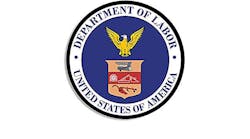Latest from Training
Sponsored
The Mechanical Contractors Association of America (MCAA) urged its members and other concerned parties to help prevent what it calls “the U.S. Department of Labor’s efforts to weaken apprenticeships” through the creation of Industry Recognized Apprenticeship Programs (or IRAPs). MCAA urged members and interested parties to comment on the proposed regulations before August 26th through a web site set up by the Construction Employers of America (CEA) at protectconstructiontraining.org.
The tagline for the CEA web site was: “Bureaucrats in Washington are trying to destroy our apprenticeship program. Let’s not let them.”
The proposed regulations are published in 84 Federal Register 29970 . The new rules would create a new parallel to the traditional Labor Department or State Apprenticeship Council apprenticeship registration, approval and oversight model.
The new proposed system had its origin in the Trump Administration’s Executive Order 13801, Expanding Apprenticeship in America, from back in June 2017. The Executive Order set up a blue-ribbon panel to consider ways to expand apprenticeship in the domestic economy.
The underlying assumption by the administration was that the skills gap in the American workforce stems from the failure of a large part of the domestic economy to utilize apprenticeship as a workforce development tool, with the current DOL/SAC state system being too complex and unwieldy for most businesses. The new rule would establish a process for recognizing Standards Recognition Entities (SREs), which would in turn recognize IRAPs.
Throughout the course of the initial policy-making process, the EO and the DOL process continued assurances that the construction industry would be exempt from incursion by the SRE/IRAP process because the construction industry has the distinction of being the largest and most successful user of the traditional process. (Fully 48% of all registered apprentices on average over the past five years work in the construction industry, surpassing DOD military apprenticeships, the second largest user, at 32% of all registered apprentices.)
However, there is some language in the proposed regulations that indicates it might, at some future point, be expanded to include the construction industry.
MCAA, on its web site, objected to that possible expansion stating:
The 155-page proposed regulations embody a complex alternative private sector registration and oversight regime that is based on a series of underlying assumptions and expectations and cost/benefit and cost assumptions that must be held to very close scrutiny.
At the heart of the matter is the huge amount of federal money at stake, which may have a determinative impact on which system is finally adopted. From the MCAA site:
The initial proposed regulations raise questions about the applicability of related Federal benefits of IRAPs as compared with Registered Programs, and the applicability of grant entitlement and EEO and affirmative action compliance as it relates to both types of programs. The proposal also says the regulations would not constitute a “major rule” ($100 million economic impact) for purposes of the Congressional Review Act.
John McNearney, General Council for MCAA, in an interview with CONTRACTOR Magazine, said, "Certainly—and we’ve said this—nobody denies that there is a workforce skills and availability shortage in construction industry and virtually all industries. And industry by industry we as a country are going to have to deal with it. We are highly skeptical that this IRAP is anything like an effective measure to address the skilled construction workforce availability deficits and skills training needs. And we are skeptical too of the underlying premise of these regs, which is that the current registration system is so rigid and inflexible that it cannot be redeemed to address the programs going forward. We did not see a lot of authentication of those underlying premises either in the regulatory record or in the proposal.”
MCAA is working with the UA, the North American Building Trades Unions (NABTU) and other apprenticeship sponsoring employer associations such as the Construction Employers of America (CEA) to provide a comprehensive analysis and commentary on the proposal.
As of press time, there have been more than 100,000 coments on the proposed regulations. The MCAA’s own comments can be found at www.mcaa.org/wp-content/uploads/2019/08/MCAA-IRAP-Comments-2019-07-25.pdf. They read in part:
DoL should not recognize Standards Recognition Entities (SREs) or IRAPs in the construction industry. And, the construction industry/sector should be broadly defined to include both building and construction jobsite occupations and traditional construction industry building, plant, and industrial facility maintenance and service occupations frequently incorporated into building trades Registered Apprenticeship programs.
MCAA also urges DoL to grant that exemption on a permanent basis, as per the Apprenticeship Task Force recommendations. The regulatory record and Task Force recommendations do not support a more tenuous exemption permitting a periodic construction industry deconfliction review on the basis of incomplete and questionable evaluation criteria and nebulous regulatory procedures.
The next stage of the process is an extensive comment review period, prior to fashioning the final regulations, all of which will eventually be put up for public comment.
Steve Spaulding | Editor-inChief - CONTRACTOR
Steve Spaulding is Editor-in-Chief for CONTRACTOR Magazine. He has been with the magazine since 1996, and has contributed to Radiant Living, NATE Magazine, and other Endeavor Media properties.


